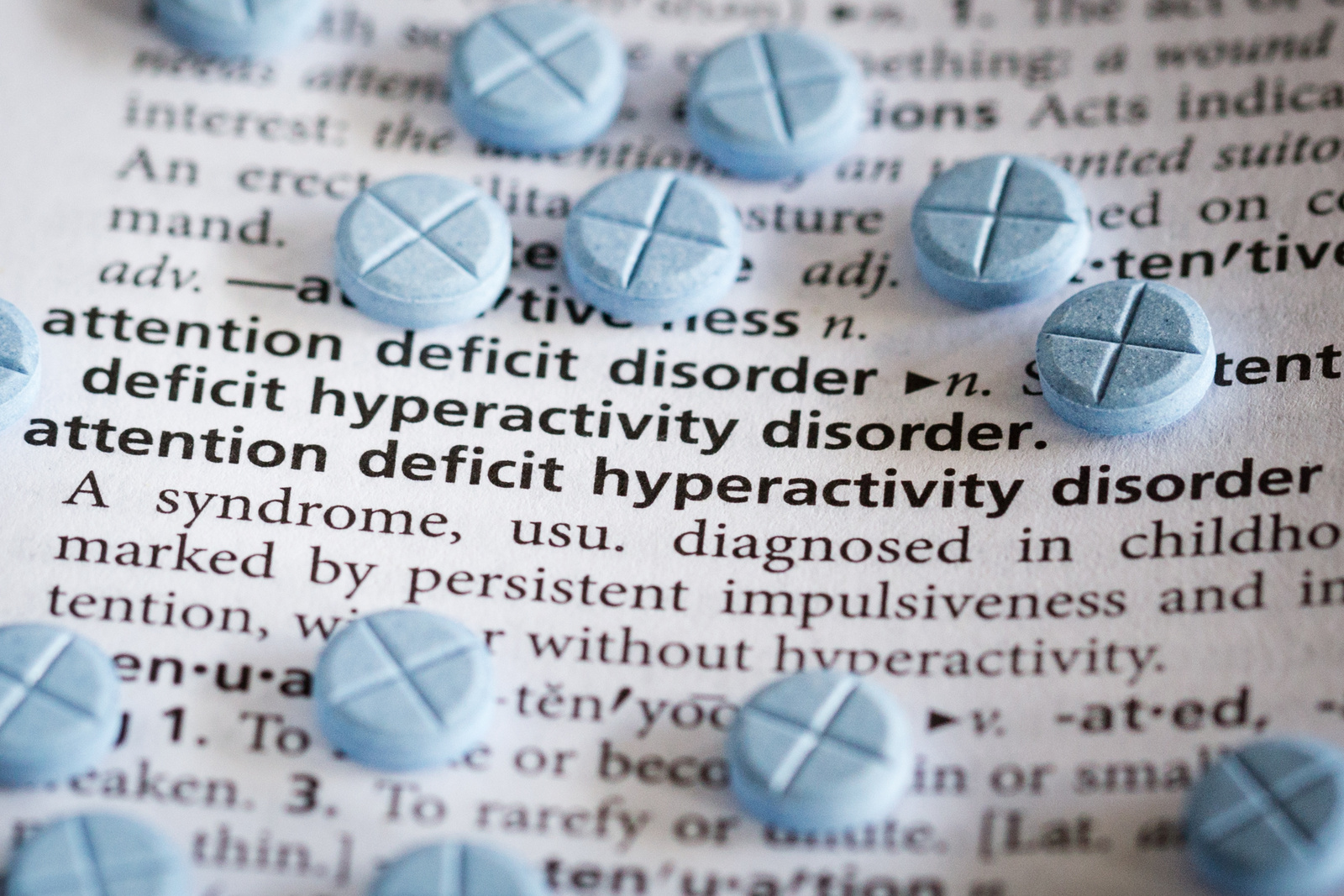Concerta and Ritalin are two brand-name versions of the prescription medication methylphenidate hydrochloride. Other than some differences in how these drugs are formulated and prescribed, the primary difference is how long the effects last.
Find out the similarities and differences between Concerta and Ritalin, how they work, their side effects, and how to determine which is right for you or a loved one.
What Is Ritalin?
Ritalin is the brand name of methylphenidate, a stimulant medication used to treat ADHD and narcolepsy in children and adults. It comes in:
- An immediate-release (IR) drug that’s under the brand name “Ritalin”
- A sustained-release drug that’s under the brand name “Ritalin SR”
- An extended-release (ER) drug that’s under the brand name “Ritalin LA”
There are some differences between these versions of Ritalin, including:[1]
- Ritalin (IR) enters the bloodstream quickly and boosts dopamine levels to relieve ADHD symptoms. It provides symptom relief for about 3-4 hours.
- Ritalin SR enters the bloodstream slowly, providing 4-8 hours of symptom relief.
- Ritalin LA enters the bloodstream slowly and provides up to 10 hours of relief.
What Is Concerta?
Concerta is a brand-name version of methylphenidate, an oral stimulant medication that’s approved to treat ADHD in adults and children. Concerta is available in extended-release (ER) tablets designed to provide symptom relief for up to 12 hours, making it one of the longer-lasting ADHD medications available.[2] In some cases, Concerta can provide up to 12 hours of relief.
How Are Concerta and Ritalin Used?
Concerta and Ritalin are commonly used to treat ADHD, but they may be prescribed to treat narcolepsy.
People with ADHD often have issues with dopamine activity in their brains, leading to hyperactivity, poor attention span, forgetfulness, and impulsivity.[3] For ADHD, Concerta and Ritalin work by increasing the dopamine activity in the brain to provide relief of symptoms. Dopamine is a neurotransmitter that influences movement and attention.
Narcolepsy, a rare sleep condition, can cause excessive daytime sleepiness, bouts of muscle weakness, hallucinations, and sleep paralysis. This disorder is believed to be due to a depletion of specific brain cells that produce hypocretins, chemicals that play a role in the sleep and wake cycle – including preventing deep sleep from occurring at inappropriate times.[4]
Concerta and Ritalin increase the levels of dopamine and norepinephrine in the brain, which can improve alertness and minimize symptoms of narcolepsy.
Concerta and Ritalin Dosage
Concerta and Ritalin have different formulations and dosages. However, either drug should be prescribed at the lowest effective dosage for the shortest period of time.
Concerta Dosage
Concerta is usually prescribed at 18 mg once daily for first-time children and adolescent patients. This dose may be slowly increased until symptoms are relieved. The maximum daily dose is 54 mg for children 6-12 years old and 72 mg for adolescents and adults.
Adults usually start with 18 or 36 mg daily, which may be increased by 18 mg each week until the maximum daily dose is reached.[5]
Concerta is generally not recommended for children under 6 years of age due to the lack of studies on its safety and efficacy in this age group. The use of Concerta in adults over 65 is not explicitly contraindicated, but caution is advised due to potential increased sensitivity to the drug’s effects and the possibility of more pronounced side effects.
Ritalin Dosage
Ritalin dosage depends on the formulation.
IR Ritalin must be divided into two or three smaller doses throughout the day to maintain proper dopamine and norepinephrine levels.
For children, the starting dosage is 5 mg of Ritalin twice per day, which may be gradually increased by 5 mg or 10 mg each week until the maximum daily dose of 60 mg is reached. The usual dosage for adults is 20-30 mg of Ritalin per day in divided doses, but your doctor may adjust the dosage as needed.[6]
Ritalin SR and Ritalin LA are slow-release drugs that require fewer doses throughout the day. The starting dose may be 20 mg, which can be gradually increased in 10-mg increments each week until the maximum daily dose of 60 mg per day is reached.

Side Effects and Risks of Concerta and Ritalin
Concerta and Ritalin are two brands with the same active ingredient, so they have the same side effects:
- Decreased appetite
- Nausea
- Stomach pain
- Nervousness
- Difficulty sleeping
- Headache
Concerta and Ritalin can trigger or worsen psychiatric problems in some children and adults, including cognitive impairments, bipolar disorder, aggression, and behavioral issues. Children and adolescents may develop symptoms like hallucinations or delusions.
Though less common, methylphenidate hydrochloride can cause problems with the heart and circulatory system, such as increased blood pressure and heart rate and an increased risk of stroke and heart attack.[7] Doctors must monitor the heart rate and blood pressure of anyone on this drug.
Although rare, there is a risk of sudden death associated with Ritalin use in individuals who have serious heart problems or congenital heart defects.[8] This risk underlines the importance of thorough medical assessment, including cardiac evaluation, before starting treatment with Ritalin or any stimulant medication. Make sure to notify your doctor if they have a personal or family history of heart or circulatory problems.
Some other side effects of methylphenidate hydrochloride include:
- Painful and prolonged erections
- Seizures (more likely with a history of seizures)
- Temporarily delayed growth in children
- Changes to eyesight
Risks of Concerta and Ritalin
While some individuals may develop tolerance to the effects of stimulant medications such as methylphenidate hydrochloride over long-term use, leading to a need for higher doses to maintain the same therapeutic effect, this is not universally experienced by all users. Monitoring and regular consultation with a healthcare provider can help manage and adjust treatment as needed to maintain efficacy without increasing dosage indiscriminately.
Taking higher doses or taking the drug for a longer period of time can also lead to drug dependence. When this occurs, you may experience withdrawal symptoms if you stop or dramatically reduce your dosage.
While stimulant withdrawal isn’t usually life-threatening, it can be intense and uncomfortable. The symptoms of ADHD may worsen after stopping, but some other symptoms include sleep issues, depression, and fatigue.
If you want to stop taking Ritalin or Concerta or wish to reduce your dosage, you will need a taper schedule to “wean” yourself off the drug and minimize the withdrawal symptoms. Always speak to your doctor about stopping or adjusting your medication and follow their recommended taper schedule.
Concerta and Ritalin both carry the risk of overdose if you take too much. This is a life-threatening emergency that requires prompt medical attention. If you suspect someone is overdosing, call 911 immediately.
Are Ritalin and Concerta Addictive?
Both Ritalin and Concerta contain methylphenidate hydrochloride, which has the potential for abuse and dependence, particularly if used in ways not prescribed by a healthcare provider. However, when used as directed for the treatment of ADHD, the risk of developing an addiction is considered lower. In addition to the relief of symptoms they provide, these drugs can have effects like euphoria, alertness, and a sense of well-being. Some people may misuse prescription stimulants like Concerta or Ritalin to achieve these effects.
In addition, drugs like Ritalin and other ADHD medications may be misused by students as a study aid to improve their memory and stay awake longer. While some students misuse ADHD medications like Ritalin and Concerta hoping to enhance academic performance, research suggests that non-prescribed use of these drugs does not guarantee an improvement in academic outcomes and may be associated with negative academic consequences.[9]
Often, misuse of stimulant drugs occurs when a valid prescription is taken in larger doses or for longer periods than intended. Otherwise, people may purchase or steal these drugs from friends or family members.
Stimulant drugs like Concerta and Ritalin are available on illicit markets, but there’s an additional risk to using them. Prescription drugs go through rigorous processes to ensure safety and proper handling. Illicit drugs don’t, so there’s no way to guarantee the dosage or actual ingredients. Many prescription medications sold illicitly are counterfeit and only resemble the drug they’re supposed to be, and they may contain dangerous ingredients like the deadly opioid fentanyl.[10]
Treating Stimulant Addiction
An addiction to Concerta or Ritalin can occur with prolonged use and misuse, though the risk is much higher with misuse. Ritalin addiction is a stimulant use disorder, which is compulsive, uncontrollable drug-seeking and using behavior that makes it difficult to quit.
While addiction can be difficult to overcome – especially when it involves a drug that’s necessary to treat a mental health condition like ADHD, effective treatment options are available.
Drug rehab for stimulant use disorder is tailored to the individual but often includes detox to taper off the drug and manage withdrawal, followed by inpatient or outpatient rehab. Behavioral therapies like cognitive behavioral therapy and contingency management can be effective for treating stimulant use disorders and co-occurring disorders, such as ADHD.
Concerta or Ritalin: Which Is Right for Me?
Concerta and Ritalin are two brands of the same drug, so the primary differences are their dosage and how long their therapeutic effects last. Some people experience more relief with an immediate formula, while others may prefer taking one dose with effects that last the entire day. It is important to speak to your doctor to determine the best choice for you or your loved one.

